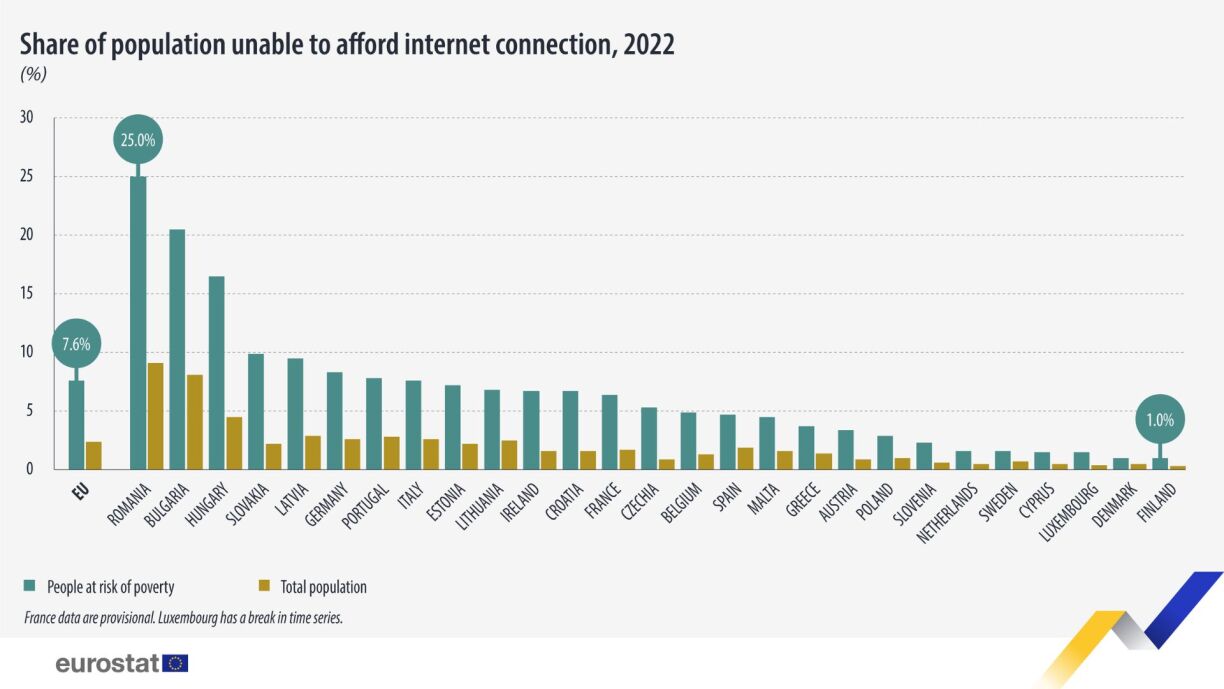
As we mark World Wide Web Day, a time dedicated to acknowledging the profound impact of the internet on our daily lives, it is vital to consider the continued challenges of digital exclusion across the European Union. The latest Eurostat report for 2022 brings to light the significant disparities in internet affordability among member nations, with Luxembourg leading in providing affordable internet access to its citizens.
In 2022, 2.4% of the EU population were unable to afford an internet connection, a 0.3% improvement from 2021 (2.7%). The situation improved further for the population at risk of poverty, with 7.6% unable to afford internet access, down by 0.8% from the previous year (8.4%).
However, the gap between the total population and those at risk of poverty in terms of internet affordability remained visible across EU countries.
Certain countries displayed significant issues regarding digital poverty. For example, the share of people at risk of poverty unable to afford an internet connection was highest in Romania at 25%, followed by Bulgaria (20.5%), and Hungary (16.5%).
On a positive note, Denmark, Finland, Cyprus, and Luxembourg stood out for their strides in ensuring internet access to their residents. At 1%, both Denmark and Finland recorded the lowest shares of individuals unable to afford an internet connection, closely followed by Cyprus and Luxembourg at 1.5%. This points to the progress made in some EU member countries to bridge the digital divide.

Luxembourg’s accomplishments mirror the nation’s commitment to supporting digital inclusion and achieving the goals set by the European Pillar of Social Rights (EPSR). The capacity to afford internet connection for personal use is an integral component of the severe material and social deprivation rate and a headline indicator of the EPSR’s “social scoreboard”.
World Wide Web Day proves to be an opportunity to recognise the progress made while continuing to address the disparities in internet affordability. Digital access is not just about technology, but it is a matter of social inclusion, and further efforts are required to ensure everyone can enjoy the benefits of the internet.